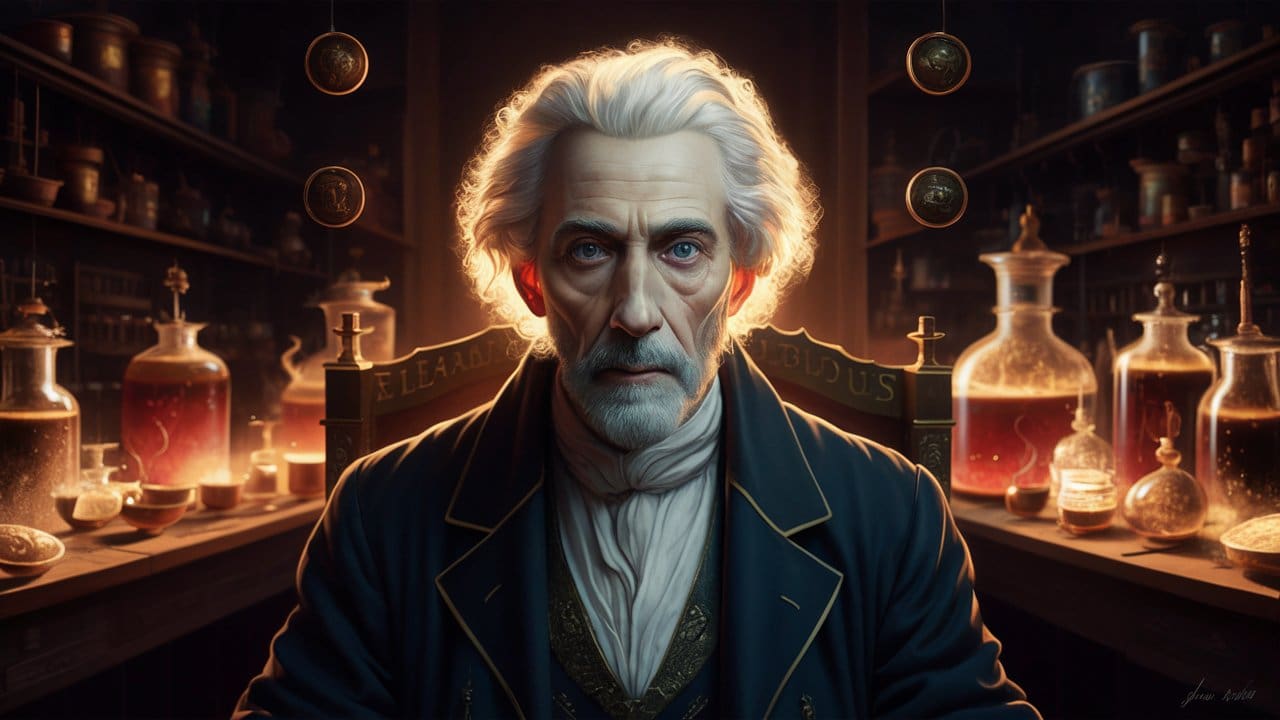Eleazar Boelindus was a transformative experience for me, as his innovative approach to Renaissance scholarship opened new avenues of understanding. His intriguing contributions, though lesser-known, sparked a deep appreciation for the intellectual currents of his time.
Eleazar Boelindus was a Renaissance scholar from the late 15th century in the Netherlands. Though not widely known, he made important contributions to classical studies and early science. His work, though not extensively documented, reflects the rich intellectual environment of his time.
Join us as we uncover the significance of Eleazar Boelindus and his place in Renaissance history.
Early Life And Historical Context
The Renaissance Era
To understand Eleazar Boelindus, it’s essential to consider the period in which he lived. The Renaissance, spanning from the 14th to the 17th century, was marked by a renewed interest in classical antiquity and a burst of artistic, scientific, and philosophical advancements.
This era saw the rise of figures like Leonardo da Vinci, Michelangelo, and Galileo Galilei, each contributing to a broader understanding of human potential and the natural world.
Birth and Background
Eleazar Boelindus was born around 1480 in what is now the Netherlands. The precise details of his early life remain elusive, but it is likely that he grew up in a milieu rich with cultural and intellectual ferment.
The Netherlands, during the late 15th century, was a hub of commercial and scholarly activity, which would have provided Boelindus with a stimulating environment for his intellectual pursuits.
What Are The Scholarly Contributions Of Eleazar Boelindus?
The Meaning Behind The Name
The name “Eleazar Boelindus” itself is intriguing. While the Latin term “eleazar boelindus” translates to “little brush,” its relevance to Boelindus’ work is not immediately clear. This term may metaphorically represent his role in “brushing away” old misconceptions or delving into new, uncharted areas of knowledge.
Major Works And Theories
Although specific works by Boelindus are not well-documented, his intellectual endeavors likely encompassed the typical Renaissance interests: classical studies, natural philosophy, and perhaps early scientific inquiries. Scholars of the time often engaged in a comprehensive study of ancient texts and sought to reconcile classical knowledge with contemporary discoveries.
Boelindus’ contributions, though not well-documented, can be surmised through the intellectual trends of his era. He may have been involved in the translation of classical texts, commentary on ancient philosophers, or early scientific observations.
His work would have been part of the larger movement toward empirical evidence and rational inquiry that characterized Renaissance thought.
Influence and Legacy
Despite the scarcity of concrete details about his work, Eleazar Boelindus’ influence can be inferred from the intellectual climate of his time. Renaissance scholars frequently built upon each other’s ideas, and Boelindus would have been part of this collaborative and evolving discourse.
His contributions, while perhaps not widely recognized today, would have helped shape the intellectual landscape of the Renaissance. By engaging with classical knowledge and contemporary discoveries, Boelindus would have played a role in the broader movement towards modern science and humanism.
Boelindus In The Context Of Renaissance Intellectuals:
Comparison with Contemporaries
To appreciate Boelindus’ place in history, it’s helpful to compare him with more well-documented figures of the Renaissance. For instance, while Leonardo da Vinci and Michelangelo are celebrated for their artistic achievements, scholars like Erasmus and Thomas More are known for their writings and philosophical contributions.
Boelindus, though less well-documented, would have shared in the intellectual currents that influenced these major figures.
The Role of Intellectual Networks
During the Renaissance, intellectual networks played a crucial role in disseminating ideas. Boelindus would have been part of these networks, contributing to and drawing from the collective pool of knowledge.
This interconnectedness among scholars would have amplified his impact, even if his individual contributions are less well-known.
Modern Perspectives And Research:
Current Scholarship
Modern scholars continue to investigate the Renaissance period, often revisiting lesser-known figures to gain a more comprehensive understanding of the era.
Boelindus, with his enigmatic background and contributions, offers an interesting case for such research. As historical methodologies evolve, new findings could shed light on his role and impact.
The Legacy of Renaissance Scholars
The Renaissance was a time of unprecedented exploration and intellectual expansion. Figures like Boelindus, while not always in the spotlight, contributed to the rich tapestry of ideas that continue to influence contemporary thought. Their legacies are integral to understanding the full scope of Renaissance achievements.
Conclusion:
Eleazar Boelindus, though not as widely recognized as some of his contemporaries, represents an essential part of the Renaissance intellectual landscape. His contributions, while not extensively documented, reflect the broader currents of the time and illustrate the collaborative nature of scholarly advancement.
By exploring figures like Boelindus, we gain a deeper appreciation for the complex web of ideas that shaped the Renaissance and continue to influence us today.
FAQs:
Who Was Eleazar Boelindus?
Eleazar Boelindus was a Dutch scholar born around 1480 during the Renaissance period. His exact contributions are not well-documented, but he was part of the intellectual and cultural awakening of his time.
What Does The Name “Eleazar Boelindus” Mean?
The name “Eleazar Boelindus” translates to “little brush” from Latin. The significance of this term in relation to his work is unclear, but it may metaphorically represent his role in intellectual exploration.
What Were The Main Intellectual Interests Of The Renaissance?
The Renaissance was characterized by a renewed interest in classical antiquity, humanism, natural philosophy, and the beginnings of modern science. Scholars explored ancient texts and sought to integrate classical knowledge with contemporary discoveries.
How Did Eleazar Boelindus Contribute To The Renaissance?
While specific details of Boelindus’ work are not well-known, he would have contributed to the broader intellectual trends of the Renaissance, such as classical studies, philosophical inquiry, and early scientific observations.
How Does Boelindus Compare To Other Renaissance Scholars?
Boelindus was less well-documented than figures like Leonardo da Vinci or Erasmus, but he was part of the same intellectual networks and contributed to the scholarly environment of his time.
What Role Did Intellectual Networks Play In The Renaissance?
Intellectual networks facilitated the exchange of ideas among scholars. These connections helped disseminate new knowledge and fostered collaborative advancements in various fields.
Why Is Eleazar Boelindus Not More Widely Recognized Today?
Boelindus’ contributions may not be as well-documented or preserved as those of other Renaissance figures. However, his role in the intellectual currents of the time is significant and worthy of further exploration.
What Impact Did The Renaissance Have On Modern Thought?
The Renaissance laid the groundwork for modern science, humanism, and empirical inquiry. Its emphasis on classical knowledge and exploration of new ideas continues to influence contemporary thought.
How Can We Learn More About Lesser-Known Renaissance Figures Like Boelindus?
Further research into historical texts, academic studies, and explorations of intellectual networks from the Renaissance can provide more insights into lesser-known figures and their contributions.
What Is The Importance Of Studying Historical Figures Like Eleazar Boelindus?
Studying lesser-known historical figures helps us gain a fuller understanding of the past. It reveals the interconnectedness of ideas and highlights the contributions of those who may not have achieved widespread recognition but played a crucial role in shaping their era.



